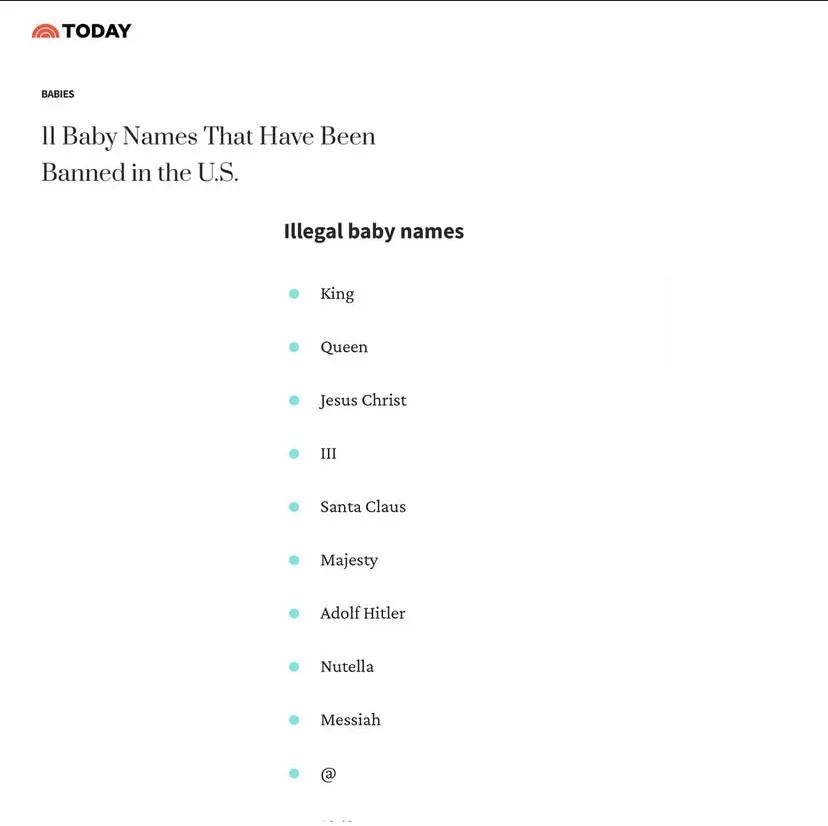
11 baby names that are banned in the U.S.
A recent report cited from USBirthCertificates.com, has highlighted 11 baby names deemed illegal by U.S. courts, sparking surprise and discussion among expectant parents.
The banned names include King, Queen, Jesus Christ, III, Santa Claus, Majesty, Adolf Hitler, Nutella, Messiah, @, and 1069. While individuals already bearing these names face no legal issues, new parents are advised to steer clear to comply with state regulations.
READ ALSO: Elon Musk insists Donald Trump’s actions will eventually lead the US to bankruptcy
Unlike many countries with strict national naming laws, the U.S. operates under state-specific guidelines, meaning there’s no universal ban list.
State governments can reject names that violate local rules, particularly those containing numerals, emojis, or special characters that cannot be processed in official databases.
For instance, names like “@” and “1069” are prohibited due to their inclusion of symbols and numbers, which are incompatible with most state record-keeping systems.
READ ALSO: Mali reportedly under serious attack, struck by two militant attacks this week
Other names, such as Adolf Hitler, are banned for their offensive connotations, while titles like King, Queen, and Majesty are often restricted to avoid implying rank or status.
Some cases have drawn notable attention. In 2013, a Tennessee judge attempted to change a baby’s name from Messiah to Martin, citing religious concerns, but the decision was overturned as unconstitutional, and the judge was later fired.
Similarly, in 1976, a North Dakota court rejected a man’s request to change his name to “1069” due to its numerical format, a ruling later upheld in Minnesota.
READ ALSO: Bill Gates predicts Lagos will be the world’s largest city
States like California and New Jersey also prohibit obscene names, while others, such as New York, limit name length to 30 characters for first and middle names. Conversely, states like Illinois and South Carolina permit numbers and symbols, offering more flexibility.
Parents in states with stricter rules, like Texas, must ensure names fit within database constraints, while Kentucky has no naming regulations at all.







